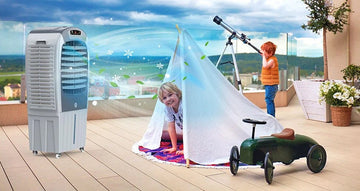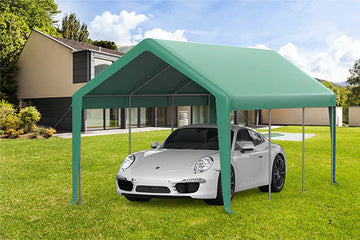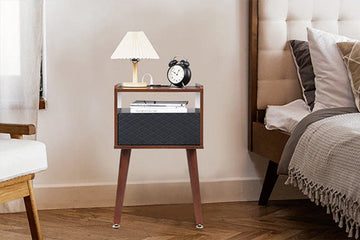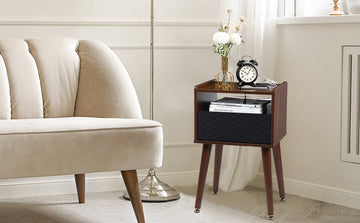In today's fast-paced world, air conditioners have become an indispensable part of our lives, ensuring comfort and relaxation even during the hottest months. With so many options available in the market, it can be overwhelming to choose the most efficient air conditioner that suits your needs and provides optimal cooling without consuming excessive energy. In this article, we will explore various types of air conditioners, including portable, small, indoor, window unit, room, wall unit, mini-split, and quiet air conditioners, to help you make an informed decision. Additionally, we will discuss where to find air conditioners for sale, including trusted retailers like Garvee.
Types of Air Conditioners
Portable Air Conditioners: Portable air conditioners offer flexibility by allowing you to move them from one room to another. They are easy to install and require no permanent installation. These units typically vent hot air through a hose that can be directed out of a window or into a drop ceiling. Portable air conditioners are suitable for cooling small to medium-sized rooms, such as bedrooms, small living rooms, or home offices. They are cost-effective and energy-efficient options for those who do not require centralized cooling.
Window Unit Air Conditioners: Window unit air conditioners are a popular choice for those seeking a cost-effective and efficient cooling solution for single rooms. These units are installed directly in a window frame and provide both cooling and dehumidification. Window unit air conditioners come in various sizes and cooling capacities, making them suitable for cooling small to medium-sized rooms. They are generally easy to install and offer a convenient way to control temperatures in specific areas.
Room Air Conditioners: Room air conditioners are versatile cooling solutions designed to cool a single room or a specific area within a larger space. These units provide powerful cooling performance, suitable for larger bedrooms, living rooms, or open-plan areas. Depending on their size and capacity, room air conditioners can cool spaces ranging from 300 to 1,000 square feet. They are available in various designs, including window-mounted, portable, or wall-mounted options.
Wall Unit Air Conditioners: Wall unit air conditioners, also known as through-the-wall air conditioners, are permanently installed in the wall of a room. These units provide efficient cooling without blocking window views. Wall unit air conditioners are popular choices for apartments, hotel rooms, and offices, as they offer powerful cooling performance and are generally more energy-efficient than window units. However, they require professional installation and are not easily portable.
Mini-Split Air Conditioners: Mini-split air conditioners, also known as ductless air conditioners, consist of two main components: an outdoor unit and one or multiple indoor units. These systems offer zoned cooling, allowing you to control the temperature of different rooms independently. Mini-splits are flexible in terms of installation, with indoor units mounted on walls or ceilings. They are energy-efficient options for cooling larger spaces or multiple rooms and provide quiet operation.
Quiet Window Air Conditioners: Quiet window air conditioners are designed to minimize noise levels, making them ideal for bedrooms or any other area where noise can be a nuisance. These units incorporate noise reduction technologies, such as advanced insulation and compressor dampening, to provide a peaceful cooling experience. Quiet window air conditioners are available in various cooling capacities and can cool spaces ranging from small bedrooms to larger living areas.
Small Portable Air Conditioners: Small portable air conditioners are compact units suitable for cooling small spaces, such as personal offices or dorm rooms. These units offer easy mobility, allowing you to move them wherever cooling is needed. They are typically lightweight and can be operated using a regular power outlet. Small portable air conditioners are cost-effective options for those seeking efficient cooling solutions for limited spaces.
Indoor Air Conditioners: Indoor air conditioners are designed to be installed inside a room or space, providing localized cooling. They do not require any external components or venting, making them suitable for spaces without access to windows or external walls. These units are often used in server rooms, small offices, or areas where temperature control is crucial.
Choosing the Most Efficient Air Conditioner: When considering which air conditioner is the most efficient for your needs, several important factors should be taken into account. To ensure optimal cooling efficiency, consider the following:
Cooling Capacity: The cooling capacity of an air conditioner is measured in British Thermal Units (BTUs). The higher the BTU rating, the larger the area an air conditioner can effectively cool. It is essential to choose an air conditioner with an appropriate BTU rating for your room size. An undersized unit may struggle to cool the space efficiently, while an oversized unit may cycle on and off frequently, wasting energy. Ensure you calculate the appropriate BTU rating based on the room's square footage and insulation levels.
Energy Efficiency Rating: Energy efficiency ratings, such as the Seasonal Energy Efficiency Ratio (SEER) or Energy Efficiency Ratio (EER), indicate how efficiently an air conditioner consumes electricity to provide cooling. Higher SEER or EER ratings indicate greater energy efficiency. Look for air conditioners with higher ratings to reduce energy consumption and save on utility bills in the long run.
Air Quality Features: Some air conditioners offer additional features to improve indoor air quality, such as air filtration systems, dehumidification, or ionizers. These features can help remove allergens, dust, and humidity from the air, providing a healthier and more comfortable living environment. Consider these features if you have specific air quality concerns.
Noise Levels: Air conditioners can produce varying levels of noise during operation. If noise is a concern, look for units specifically designed to operate quietly, such as quiet window air conditioners or mini-split systems. Check the manufacturer's specifications for noise level information, commonly measured in decibels (dB).
Ease of Installation and Use: Consider the ease of installation and operation when choosing an air conditioner. Some units require professional installation, while others can be easily installed as a DIY project. Similarly, user-friendly controls and programmable settings can enhance the overall convenience of using your air conditioner.
Garvee, a renowned home furnishing brand specializing in a wide range of products, including air conditioners, offers efficient and high-quality cooling solutions. With their vast inventory and commitment to customer satisfaction, Garvee ensures that their customers find the perfect air conditioner to meet their needs. As an authorized retailer, they provide reliable air conditioning units from various reputable manufacturers, allowing customers to choose from a wide selection of top brands and models.
Choosing the most efficient air conditioner for your needs requires considering factors such as cooling capacity, energy efficiency ratings, air quality features, noise levels, and ease of installation and use. By understanding the various types of air conditioners available, including portable, small, indoor, window unit, room, wall unit, mini-split, and quiet air conditioners, you can make an informed decision that suits your specific cooling requirements.
Office Products














